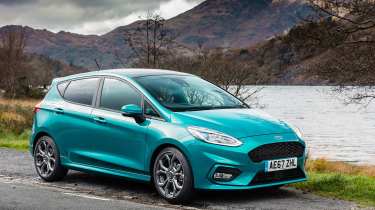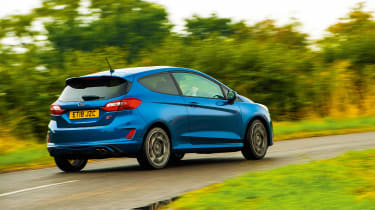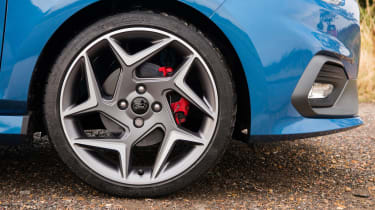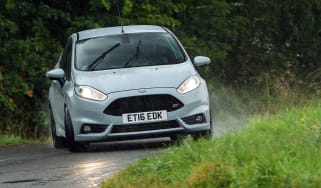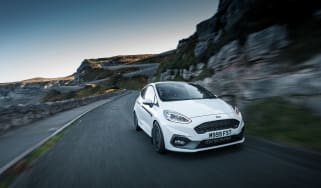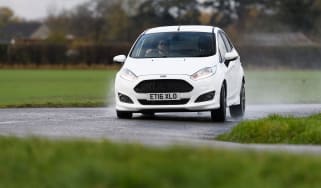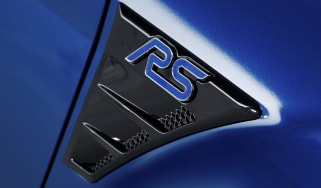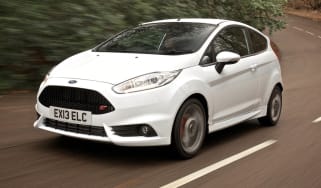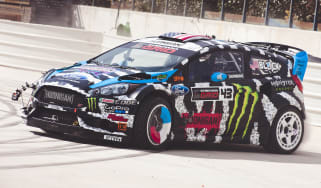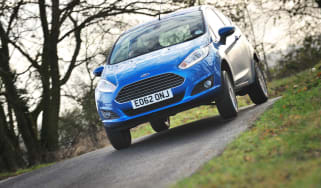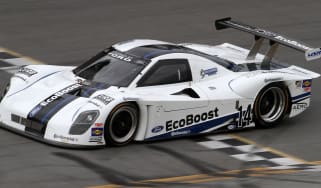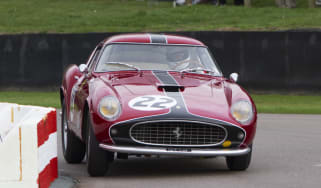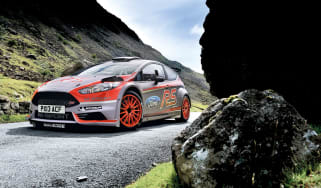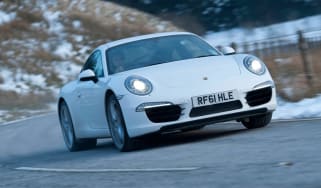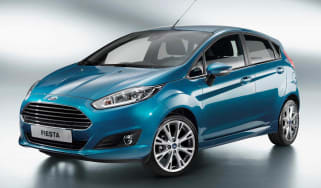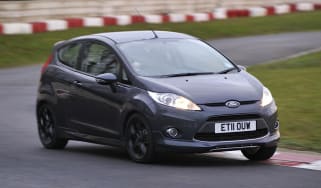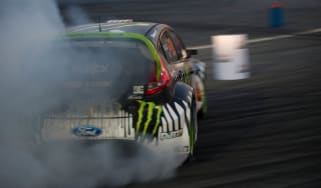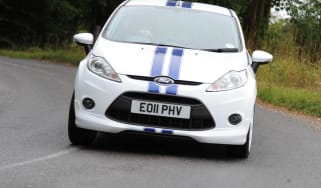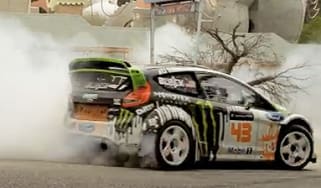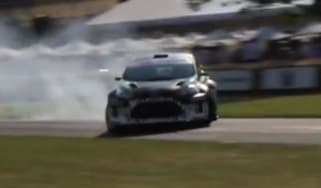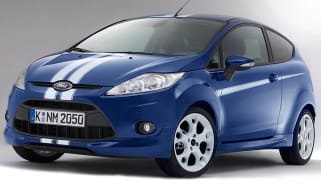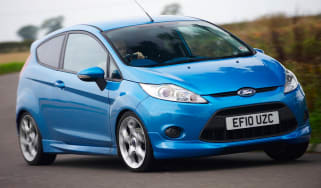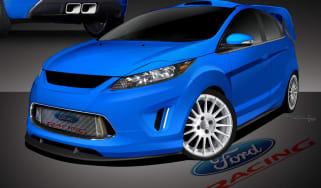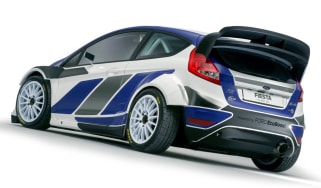Ford Fiesta (2017-2023) review – retiring as the best supermini
Regularly Britain’s most popular car, it also happened to be one of its most accessible driver’s cars
Replacing a well-loved model with the next generation can be fraught with danger, but with the last Fiesta, Ford managed to keep all the best bits of the previous car while enhancing areas where the old car was beginning to lag behind its rivals.
Central to the previous Fiesta’s DNA was an entertaining driving experience, and with the eighth-generation machine Ford maintained the car’s feisty and playful nature while improving refinement, updating the interior and adding some of the tech that’s expected regardless of class.
> New Ford Fiesta ST vs hot hatch greats - can it stand up to the very best?
There’s a wide choice of engines – four mass-market three-cylinder petrols, three of which are turbocharged, and one four-cylinder diesel. With the 2021 update, mild hybridity was incorporated to an extent on the petrols. The range-topping Fiesta ST performance model spanned the last Fiesta's tenure. All told there should be a Fiesta to suit just about every buyer.
The Fiesta's enhanced chassis didn't take anything away from the driving experience but added an improved ride and upped the refinement. Inside there’s a much better cockpit, with many models featuring large touchscreens and Ford Sync technology, although some interior trims still feel a little hard, low rent and behind the quality standard set by some rivals at the time.
Ford Fiesta: in detail
- Engine, gearbox and technical specs – All petrols have three-cylinder engines, while a four-cylinder diesel is also available. Most use a six-speed manual gearbox, but an automatic was available.
- Performance and 0-60 time – Range-topping ST is rapid, but even the regular three-pots have entertaining performance in their higher outputs.
- Ride and handling – Still class-leading. An updated chassis resists understeer well and rewards the committed driver, while comfort and refinement levels have also improved.
- MPG and running costs – WLTP economy of over 60mpg makes the diesel a fuel-sipper, but the EcoBoost petrols are frugal too.
- Interior and tech – Some rivals now offer greater quality or more inspiring design, but the Fiesta’s cabin is a big step up in quality and comfort from before.
- Design – Looks like a gentle evolution of its predecessor. It’s not universally successful, but sporty models have attitude and the bright orange Fiesta ST Performance Edition is quite appealing.
Prices, specs and rivals
The Fiesta range at the peak of its powers ranged from the £16,115 Trend, to over £24,000 for an ST-3. The range kicked off in Trend trim, available with a limited range of engines (though the diesel is still included). Miserly ‘Popular Plus’ equipment levels were nowhere to be found – here you still get 16-inch alloy wheels, LED headlamps, a heated windscreen and air conditioning – but the cars further up the pricing structure add just enough to tempt you away.
More reviews
Titanium is the next step up, offering the mid-tier petrols and the diesel, as well as a standard five-door body style and an auto gearbox option. It grants you a different design of 16-inch alloy, keyless start, cruise control and a few other features in addition to the Trend’s equipment.
Titanium X has same engine and transmission options as the Titanium, but further kit including larger 17-inch alloy wheels, B&O premium audio, seat height adjustment for both front seats, partial leather trim, and a 4.2-inch display in the instrument cluster.
The Active Edition was a slightly different proposition, with body cladding and a slightly taller ride height – marketers probably hate it if you mention the old Rover Streetwise in this context, but that’s essentially the vibe here. It comes with the same engines as the Titaniums but including all the visual tweaks. It's arguably sturdier looking than the Puma crossover that took over from the Fiesta.
An Active X Edition adds the option of the most powerful 1-litre EcoBoost, plus some of the other toys from the Titanium X, while the Vignale Edition is this generation’s Fiesta Ghia X, the model getting the upper pair of 1-litre petrols, the diesel, leather trim, unique 17-inch alloy wheels and more.
The more evo-centric models begin with the ST-Line and ST-Line X, each offering the full range of 1-litre EcoBoost petrols and the sole diesel, and reintroducing the three-door body style. Each get touches such as unique 17-inch alloy wheels (18-inch for the ST-Line X), an ST-style bodykit, sports suspension and sports seats, starting from £19k in 2020.
And of course, the range tops out with the Fiesta ST. The killer app here is a specially tuned chassis and 1.5-litre EcoBoost engine. Before the 2021 update, a limited-slip differential was optional in the Performance Pack (1689) but became standard. It was also standard, along with coilover suspension, in the Edition and Fiesta ST Performance Edition models.
The sector in which the Fiesta competes is the hardest-fought in Europe, so you’re spoiled for choice for alternatives. Tellingly though, much fewer can compete with the Fiesta where it matters for us, which is in its dynamics, performance and sense of fun – so we’ll keep things relatively simple.
Three newcomers to the market, the Renault Clio, Peugeot 208 and its cousin, the Vauxhall Corsa, all feel higher-quality and more spacious than the Fiesta, with the Peugeot in particular being one of the most stylish in the segment, but none can quite match the Ford’s sense of fun. Mini gets closer with the various versions of its retro hatchback, and also betters the Ford for quality, but by the time you get to the ST versions of the Fiesta, the Mini has no real answer at the moment. Mazda’s 2 has a fine chassis and stylish interior but relatively lacklustre engines, while Suzuki’s Swift gets a different two out of three – a light and chuckable chassis, strong engines, but a less appealing cabin.
Hot hatches are few and far between at this level too, with no offerings from previous big players Renault or Peugeot at the moment. Mini offers various Cooper, Cooper S and JCW versions of its hatchback, Volkswagen will sell you a Polo GTI, Suzuki has the Swift Sport and Hyundai’s soon to offer an i20 N, but for the time being, the Fiesta ST remains the class leader.

